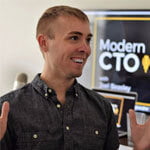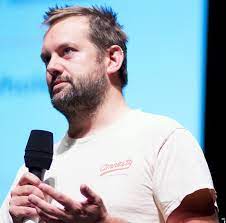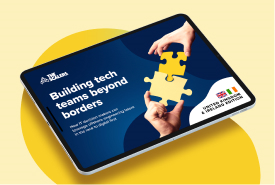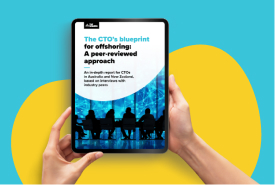As a CTO, your day may involve building your business’s tech infrastructure, choosing the right tools, and outlining a foolproof technical strategy. Keeping up with the latest technologies and management strategies can be challenging with such responsibilities.
To help you out, we’ve curated and analysed the top books for CTOs that can give you all the advice you’ll ever need while you unwind after a long day at work. These carefully selected titles explore people management, technology strategy, and building stronger relationships with your engineering teams.
Enjoy!
What makes a great book for CTOs?
Look, we could state the obvious here, but it’s also the most important thing: if you’re looking for insights into big tech, startups, or any other particular topic related to engineering leadership, make sure the authors have real-life experience in that field.
The best CTO books don’t just throw around buzzwords like “digital transformation” and call it a day. They’re written by people who’ve actually had to explain to a CEO why the servers are on fire at 3 AM, or why that “simple” feature request will take six months to build properly.
The authors on this list have been there, survived to tell the tale, and learned something useful in the process.
13 best books for CTOs in 2025
1. Modern CTO
Author: Joel Beasley
Best for: Developer-turned-CTOs
Modern CTO is one of the most recommended books for CTOs for many reasons (and we’ll delve into them later).
But first, let’s talk about its author.
Joel Beasley began writing code at 13 and went on to sell his first technology for one million dollars when he was only 18 years old. Today, he is a CTO, working with clients ranging from startups to billion-dollar enterprises.
His most famous book, Modern CTO, is based on Beasley’s personal experience. He talks about his challenges, lessons learned, and what to avoid when you’re a CTO.
You’ve got to be able to communicate in life. It’s enormously important. Schools, to some extent, under-emphasise that. If you can’t communicate, talk to others, and get your ideas across, you’re giving up your potential.

Why you should read it:
Modern CTO is based on a fundamental principle: developers are not CTOs but can learn to be one.
Through this book, you can learn how to successfully navigate the unexplored transition between the role of a developer and a CTO. You’ll also learn how to manage people and deadlines, know when to abandon a sinking ship and build a better one, deal with poor code, avoid some common UX mistakes, and more.
Modern CTO is the ultimate guidebook if you’re transitioning from ‘a’ developer to ‘the’ CTO.
2. Managing Humans: Biting and Humorous Tales of a Software Engineering Manager
Author: Michael Lopp.
Best for: Technical leaders craving laughs in tough leadership moments.
Michael Lopp, a Silicon Valley-based engineering manager, is known for his unique writings across diverse topics such as people management, pens, and werewolves!
What makes Managing Humans a must-read book for CTOs is Lopp’s humorous yet insightful management experiences at Apple, Netscape, Borland, and Symantec, among others.
Based in Silicon Valley, where a dull day at work includes throwing chairs and yelling at each other, Lopp has pulled no punches to deliver stories that will speak to you.
My definition of a great manager is someone with whom you can make a connection no matter where you sit in the organisation chart.

Why you should read it:
Michael Lopp believes that writing code is easy. Managing humans is not, and that’s why you need a book to help you do it. Whether you’re an aspiring CTO, a current CTO, or simply wondering what a day in the life of a CTO looks like, Managing Humans is for you.
The book highlights fundamental leadership aspects such as dealing with your boss, handling conflicts, hiring the right engineers, why everyone hates meetings, motivating employees, understanding different engineering personalities, and, most importantly, thriving in everything you do.
There’s no doubt that this book has a substantial amount of information. But that’s exactly why people want to read it.
3. The Lean Startup
Author: Eric Ries
Best for: Startup CTOs
Eric Ries is a blogger, entrepreneur, innovator, and visionary. Also known as the ‘software guy’, Ries founded the Lean Startup method to shorten product development cycles to improve marketing functions.
His book The Lean Startup, nicknamed the ‘Bible of entrepreneurship’, provides a scientific approach to building and managing successful tech startups in an age where innovation is the need of the hour.
The book introduces a new strategy to change how companies are built and products are launched.
This is one of the most important lessons of the scientific method: if you cannot fail, you cannot learn.

Why you should read it:
The Lean Startup steers clear of elaborate business plans and offers entrepreneurs a way to test their vision, adapt, and adjust to create a successful business. Doing so enables businesses to shift gears with agility, modifying plans on the go, inch by inch.
4. The Hard Thing About Hard Things
Author: Ben Horowitz
Best for: Seasoned CTOs facing brutal decisions
Ben Horowitz, the author of The Hard Thing About Hard Things, is the co-founder of Andreessen Horowitz and one of Silicon Valley’s most respected tech entrepreneurs and investors.
Known for his practical advice on building a tech startup, Horowitz wrote this book to help CTOs manoeuvre the difficulties of running a tech business.
Hard things are hard because there are no easy answers or recipes. They are hard because your emotions are at odds with your logic. They are hard because you don’t know the answer and cannot ask for help without showing weakness.

Why you should read it:
The Hard Thing About Hard Things is one of the best books for CTOs because it doesn’t talk about how great it is to start a business — it talks about how difficult it is to run one.
The book analyses the daily problems confronting tech leaders, common CTO challenges, negotiations, dismissals, hiring developers, managing and motivating your team, cultivating a CEO mentality, knowing when to cash in, and more.
This fantastic business book mirrors humour, honesty, straight talk, and business lessons with lyrics from famous rap songs. It’s a must-read for veteran tech entrepreneurs and those aspiring to create their own new ventures.
5. Team Topologies: Organizing Business and Technology Teams for Fast Flow
Authors: Matthew Skelton and Manuel Pais
Best for: CTOs scaling teams and systems
Team Topologies is the first book to actually solve the “Conway’s Law problem” — the way your team structure inevitably shapes your system architecture.
Instead of just complaining about silos and communication issues, Skelton and Pais give you a concrete playbook for designing teams that work with human nature, not against it.
If you’re an architect, your job involves dealing with software. You need to know about software, you need to know about modern cloud services, and probably IOT, but you also need to know about things like Conway’s Law.

Why you should read it:
We all know that colleague who’s touched every system in the company and has become a bottleneck for everything. Team Topologies shows you how to fix that without throwing people under the bus. The book outlines four team types and suggests three ways they should interact.
You’ll learn about stream-aligned teams (the ones building features), platform teams (the ones making other teams’ lives easier), and enabling teams (the ones teaching everyone else cool tricks).
6. The CTO ¦ CIO Bible: The Mission Objectives Strategies and Tactics Needed To Be a Super Successful CTO
Author: Rorie Devine
Best for: CTOs in fast-changing executive roles
With his experience in over 20 permanent and interim CIO/CTO positions, Rorie Devine has curated a compendium of insights on being a successful CTO.
Also featured on the cover of the CIO Magazine twice, Devine has overseen three successful startups in his career. His book The CTO ¦ CIO Bible covers over 100 topics related to game-changing tactics and values any CTO can apply to their routine.
“If you think about all of the great people you’ve worked with in the past, some of the things that they probably have in common are that they are passionate about what they do, they have energy, and they bring urgency.

Why you should read it:
The CTO ¦ CIO Bible, entertaining and digestible, is a highly informative and educational book that doesn’t beat around the bush.
The book covers everything you need to know to be a successful CTO, condensed into 100 pieces of actionable insights and the odd bit of humour. Some topics covered include accountability, technology game changers, creating a competitive advantage, managing relationships, professionalism, and growth via Agile approaches.
7. Leading Exponential Change: Go Beyond Agile and Scrum to Run Even Better Business Transformations
Author: Erich R. Bühler
Best for: Tech leaders leading major organisational change
Erich R. Bühler, the creator of Enterprise Social Systems, is a consultant passionate about organisational change with years of experience helping companies adapt to daily fluctuations.
Bühler’s Leading Exponential Change is a book that will open your mind to the unique challenges different enterprises face in the modern world. Through his experience, Erich proves that simply having the right people on board is not enough — you must have the right mindset to lead the change.
Understanding frameworks, functionalities, principles, techniques, or new ways to manage people is no longer enough. We must also understand deeper factors of organisational change and learn how these can help entire companies to improve.

Why you should read it:
The relentless market innovations, such as AI, Big Data, and Agile Methodology, have all established disruptive change as the new reality. In such a scenario, what can you do as your business’s CTO? This book answers that simple yet profound question.
Bühler, through Leading Exponential Change, has developed a set of revolutionary principles and techniques to help you build a team of responsive people who challenge traditional thinking. He also explores what happens to the brain during change, methods for improving innovation, organisational psychology, the neuroscience of change, and more.
8. Rework
Authors: Jason Fried and David Hansson
Best for: Startup CTOs, small-business tech leaders, or anyone tired of corporate “rules”
Founders of Basecamp — a project-management tool — Jason Fried and David Hansson discuss the non-traditional approach to running a successful business in Rework.
Workaholics aren’t heroes. They don’t save the day, they just use it up. The real hero is home because she figured out a faster way

Why you should read it:
Rework always finds itself on the list of books for CTOs because it’s unlike anything you’ll ever read.
While most business books give you the same old advice of building business plans and studying your competition, Rework focuses on embarking on the less travelled road and succeeding in your business.
With its straightforward language and relaxed approach, Rework is the perfect playbook for hardcore entrepreneurs, small-business owners, CTOs, and anyone who wants to be successful, productive, and motivated.
9. The Phoenix Project: A Novel About IT, DevOps, and Helping Your Business Win
Authors: Gene Kim, Kevin Behr, and George Spafford
Best for: CTOs making sense of DevOps in a chaotic org
What makes The Phoenix Project different from every other CTO book collecting dust on your shelf is that it’s actually a story.
Kim and his co-authors were smart enough to realise that nobody wants to read another dry manual about process improvement, so they wrapped all the important stuff in a novel about a guy dealing with the same disasters you face every day.
In order for technology to help our organisations win in the marketplace, we have to respond to urgent business needs. That means we need to be able to ship changes ever more quickly, but we also have to preserve world-class reliability, security, and stability.

Why you should read it:
Ever had one of those weeks where everything breaks at once and everyone’s pointing fingers? That’s basically what happens to Bill Palmer, the fictional protagonist in The Phoeinx Project.
The genius here is that you’ll be laughing (or crying) because you’ve been there. The book teaches you about work types, bottlenecks, and feedback loops without feeling like homework. You’ll meet fictional characters like Brent (the guy who knows everything and becomes everyone’s dependency) and Erik Reid (the mysterious mentor who actually gets it).
By the end, you’ll understand why your deployments are a nightmare and actually have a plan to fix them.
10. The First 90 Days: Proven Strategies for Getting Up to Speed Faster and Smarter
Author: Michael D. Watkins
Best for: New CTOs or tech leaders
In The First 90 Days, Michael D. Watkins, co-founder of Genesis Advisors, focuses on the critical transition period when starting a new leadership role.
With his leadership development background, Watkins emphasises that the initial 90 days are crucial for success or failure in a new position.
A long career at a single company (or even two or three companies) is a thing of the past. Leaders experience many transitions, so the ability to transition quickly and effectively into a new role has become a critical skill.

Why you should read it:
The First 90 Days is a practical guide for new leaders, offering ten key principles for a successful transition.
It covers preparing for the shift, accelerating learning, aligning strategies with the business situation, negotiating success with superiors, securing early wins, building effective teams, and creating alliances.
The book highlights self-management and provides a step-by-step framework for leaders to excel in their new roles.
11. Confessions of an Unintentional CTO
Author: Jack Kinsella
Best for: Accidental CTOs, solopreneurs, or developers scaling their first product
Jack Kinsella, the author of Confessions of an Unintentional CTO, embarked on a unique journey from law student to accidental technology leader.
The book chronicles Kinsella’s seven-year odyssey of transforming a simple static HTML/CSS website into a thriving Rails app named Oxbridge Notes. Initially a solopreneur with minimal coding experience, he assumed the role of CTO by necessity, driven by ambitions to enhance the profitability and efficiency of his web business.
This book is not an academic exercise in collating and synthesising airy theories… instead, it is a bundle of learnings precipitated by sweat and regret.

Why you should read it:
Confessions of an Unintentional CTO explores critical aspects of web application growth, maintenance, and troubleshooting.
It’s a valuable resource for solopreneurs and web developers, offering real-world experiences and practical advice on URL management, payment challenges, testing strategies, etc.
What sets the book apart is the author’s unique narrative style, blending technical insights with personal stories and humour. Notably, Kinsella offers both HTML and luxury Kindle/PDF versions of the book for free!
12. Continuous Delivery: Reliable Software Releases Through Build, Test, and Deployment Automation
Authors: Jez Humble and David Farley
Best for: CTOs and engineering leaders building fast, reliable, and automated release pipelines
Continuous Delivery by Jez Humble and David Farley is a game-changer for making software releases fast, reliable, and less of a hassle.
The book builds on the idea of continuous integration (CI) and explains how to create deployment pipelines to turn code smoothly into usable software.
With 20+ years of experience working in the tech and engineering industry, Humble and Farley share real stories of successful projects that evolved from slow, yearly releases to a culture of delivering software frequently.
We do not believe that there is a “one size fits all” approach to any aspect of software development, let alone a subject area as large as the configuration management and operational control of an enterprise system.

Why you should read it:
Continuous Delivery teaches CTOs how to speed up delivering new software features to users. It emphasises automation and better teamwork between developers, testers, and operations.
By following the book’s advice, you can say goodbye to long, stressful release cycles. Instead, you’ll quickly turn ideas into working code users enjoy daily.
13. The Making of a Manager: What to Do When Everyone Looks to You
Author: Julie Zhuo
Best for: Novice managers
The Making of a Manager is a must-read book for both new and experienced managers.
Zhuo nails what it’s like to start managing people. She pushes you to keep learning and to be honest with yourself, even when you feel out of your depth, which happens to everyone. The book helps new managers figure out how to trust their team, delegate without stress, and create a culture where people actually want to do their best.
The Making of a Manager is everything I wish I’d known when I became a manager at the age of 25.

Why you should read it:
The Making of a Manager is a must-read book for both new and experienced managers.
Zhuo nails what it’s like to start managing people. She pushes you to keep learning and to be honest with yourself, even when you feel out of your depth, which happens to everyone. The book helps new managers figure out how to trust their team, delegate without stress, and create a culture where people actually want to do their best.
What other resources can help CTOs grow?
Books are just one way to learn. These resources can help you stay on top of trends, leadership tips, and tech insights:
- Best podcasts for CTOs. Perfect for your drive to work or when you’re zoning out in yet another budget meeting.
- Top CTO newsletters. Curated insights delivered straight to your inbox, so you can keep up with trends and strategy without disappearing into an endless scroll of LinkedIn or X.
- Must-follow tech influencers for CTOs. Follow the people shaping the future of engineering leadership.
- Software engineering blogs. Read articles on system design, architecture, and leadership from engineers and CTOs who’ve built products at scale.
BONUS: The CTO’s report on offshoring — Insights from 100 CTOs. We interviewed 100 CTOs about how they build and manage dedicated tech teams, analysed the top performers, and included global trends to give a complete view on the state of offshoring.
In summary
It’s a wrap!
We hope this list of 13 books for CTOs helps you advance in your career and understand your engineering team.
Key takeaways:
-
1
Modern CTO and The Making of a Manager guide CTOs in transitioning from developers.
-
2
Managing Humans, The CTO ¦ CIO Bible, and Team Topologies focus on mastering the art of people and organisational management, handling conflicts, and building effective team structures.
-
3
The Lean Startup and The Lean Startup, Rework, and Leading Exponential Change advocate for agile innovation, scientific approaches to building products, and non-traditional business strategies that help you adapt to constant change without losing your mind.
-
4
The Hard Thing About Hard Things, Confessions of an Unintentional CTO, and The Phoenix Project offer practical, story-driven advice on navigating the unique chaos of running tech in the real world.
-
5
Continuous Delivery, The First 90 Days, and Team Topologies explore principles for building sustainable technical practices, successfully transitioning into leadership roles, and organising teams for long-term success.
If you’re thinking about expanding and strengthening your team to put these ideas into practice, we’re here to help.
At The Scalers, we help tech leaders set up offshore tech teams in Bangalore, India.. Feel free to reach out to us by filling out the contact form, telling us your unique needs, and one of our senior executives will be in touch with you shortly.
FAQs
Continuous learning helps CTOs keep their skills sharp and stay adaptable, so they can respond to challenges quickly instead of getting stuck in outdated practices.
Books like Managing Humans and The Making of a Manager teach leadership, communication, conflict resolution, and team motivation.
CTO books break down complex strategy into practical steps and frameworks. They demonstrate how to evaluate trade-offs, prioritise initiatives, and align technical choices with business goals through real-world scenarios.
Absolutely. Titles such as Team Topologies and Continuous Delivery focus on building robust systems, improving software delivery, and designing effective team structures. They teach you how to prevent bottlenecks, enforce best practices, and maintain high-quality architecture while scaling teams and products.
Collaboration is at the heart of effective CTO leadership. Many books highlight how aligning engineers, product managers, and stakeholders drives faster delivery and better outcomes. Lessons include breaking down silos, fostering open communication, and creating teams that complement each other’s strengths.
Build Your Team,
Not Just a Contract
With The Scalers’ offshore dedicated development team, you get engineers who join your workflow for the long run. Grow steadily, stay flexible, and work with people who care about the product as much as you do.










